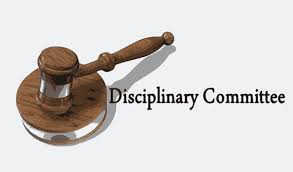 The Supreme Court in the case of Francis Owusu Mensah & Anor v National Board for Professional and Technical Examinations & 2 Ors[1]has emphasized the need for administrative bodies to act fairly and reasonably in disciplining public officers and also ensure that public officers are dismissed only with just cause. Failing this, the decision of the disciplinary body will be subject to judicial review.
The Supreme Court in the case of Francis Owusu Mensah & Anor v National Board for Professional and Technical Examinations & 2 Ors[1]has emphasized the need for administrative bodies to act fairly and reasonably in disciplining public officers and also ensure that public officers are dismissed only with just cause. Failing this, the decision of the disciplinary body will be subject to judicial review.
The Applicants were officials of the National Board for Professional and Technical Examinations (NAPTEX). NABPTEX, the First Respondent, accused the Applicants of leaking its examination questions. The First Respondent, therefore, decided to initiate disciplinary proceedings against the Applicants. The Applicants were asked to proceed on leave and an investigative committee was set up to look into the circumstances leading to the examination questions leakage. The outcome of the investigations was not communicated to the Applicants. The Applicants were invited to appear before a disciplinary committee and were subsequently dismissed.
The Applicants, therefore, sought judicial review to quash the decision of the disciplinary committee. Specifically, the Applicants asked the court to declare that their dismissal was unlawful. The Applicants also sought an order of certiorari to quash the decision of the board chairman of NABPTEX to terminate their employment and also an order directed at the First Respondent Institution not to fill their positions. The High Court granted their prayer.
The Respondents appealed to the Court of Appeal and for the first time raised the issue of the High Court’s jurisdiction to grant the reliefs sought by the Applicants. In the view of the Respondents, the reliefs sought by the Applicants could not be granted in an application for judicial review. The Court of Appeal sided with the Respondents and came to the conclusion that the High Court did not have jurisdiction. According to the Court of Appeal, “Although on the evidence, we find that the termination…was not done in compliance with article 191 of the 1992 constitution which required just cause…the procedure of judicial review adopted by the [R]espondents being clearly wrong for the redress they sought, the findings and remedies consequent upon them cannot stand.”
The Applicants appealed to the Supreme Court. In their view, the Court of Appeal erred when it set aside the entire ruling of the High Court solely on the basis that the procedure of judicial review used by the Applicants for redress was inappropriate.
The Supreme Court disagreed with the Court of Appeal and pointed out that the scope of the judicial review jurisdiction of the High Court was wide enough to take care of the reliefs that the applicants were seeking.
According to the Supreme Court, “The Disciplinary Committee set up to conduct the investigations did not offer the appellants any hearing and never published any adverse findings allegedly established against the appellants.”. The Court went on: “as the statute creating the first respondent makes it a public institution, it owes a duty to employees like the applicants to go through due process. It cannot be said that the [F]irst [R]espondent as a public institution created by an Act of parliament and empowered to perform crucial services to the public cannot be amenable to judicial review if it flouts due process in determining the rights involving workers like the applicant.”
PS: It is doubtful whether a judicial review would have been successful if the employees were working in a private company. The position remains that a certiorari will not be granted where the relationship between the master and servant was without more governed by a contract of employment[2].
[1]Civil Appeal No. J4/57/2017 (1 May 2018)
[2]Vidyodaya University of Ceylon v Silva [1964]3 All ER 865


Leave a Reply